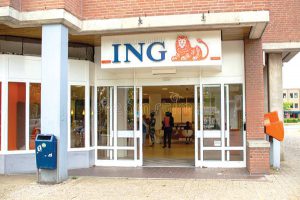Bloomberg
ING Groep NV reported second-quarter profit that beat analyst estimates after freeing up provisions for its shrinking business in Russia.
Net income of 1.18 billion euros ($1.2 billion) in the three months through June compared with expectations for profit of 1.07 billion euros, according to a statement by the Dutch lender. Loan loss provisions of 202 million euros were lower than the 509.3 million euros analysts had expected on average.
European banks froze their often-lucrative businesses in Russia as the country became increasingly isolated after its invasion of Ukraine. While competitor Societe Generale opted to take a big financial hit to exit the country, ING has pledged
to limit cost for shareholders by gradually unwinding its Russian operations.
“Our value-preserving strategy is paying off,†Ljiljana Cortan, the Dutch bank’s chief risk officer, said of the approach to Russian assets.
ING’s Russia-related exposure fell to 4.6 billion euros at the end of June from 6.7 billion euros at the end of February.
In addition to regular loan repayments, ING also received prepayments by borrowers “all at par,†Cortan told reporters. The reduction in exposure “is the major driver behind the decrease of provisions because the stock of the exposure has decreased,†she said.
The bank reduced the amount of money set aside related to Russia by a net 117 million euros. That move also reflected the fact that it replaced a broad buffer with more granular provisions for individual clients.
The company also replaced its remaining so-called provision overlay for fallout from the pandemic with one focused on risks such as an increase in energy costs, inflation and
interest rates.
In the same quarter a year earlier, the bank freed up 91 million euros of loan loss reserves that it built up during the height of the pandemic. Net income fell 19% from a year earlier.
For now, banks are in a sweet spot where they can charge more for loans as the European Central Bank exits years of negative interest rates to rein in inflation while so far avoiding a surge in bad credit.
“Our results are robust in light of the environment,†Chief Financial Officer Tanate Phutrakul said in a Bloomberg TV interview. “Looking forward, with inflation, we’re cautious about what the future will bring.â€
European banks such as ING that rely on lending income rather than trading businesses are reaping gains from rising interest rates as central banks seek to fight inflation. Last week, several major eurozone banks beat analyst expectations for second-quarter profits thanks in part to bumper lending revenue.
Net interest income rose to 3.47 billion euros in the quarter, roughly in line with analysts’ estimates. The profitability of ING’s lending business declined from the first quarter of the year as “the growth in net interest income did not fully offset the increase in the average balance sheet,†it said.
ING has offered some of the fattest investor payouts in recent years. Yet, rising shareholder payouts at competitors UBS Group AG and UniCredit SpA had raised the pressure on ING to boost dividends and stock repurchases. The Dutch lender pledged in June to distribute about 17 billion euros in the coming years.
The bank said it will pay an interim dividend of 17 cents per share, representing about a third of its profit in the first half.
“We are standing on a high capital level,†said Phutrakul. “We’re in constructive dialog with our regulator as to the timing and the magnitude of any future capital return.â€
The ECB is asking banks to factor the possibility of an economic downturn into their plans to return funds to shareholders.
The CFO suggested that won’t result in significant limitations on ING’s payout plans.
“The ECB is very cognizant about financial institutions in Europe including ING providing an acceptable return to our shareholders,†said Phutrakul. “It’s a balance of keeping investors engaged while making sure the banking system is resilient and can be relied upon in times of crisis.â€
 The Gulf Time Newspaper One of the finest business newspapers in the UAE brought to you by our professional writers and editors.
The Gulf Time Newspaper One of the finest business newspapers in the UAE brought to you by our professional writers and editors.
